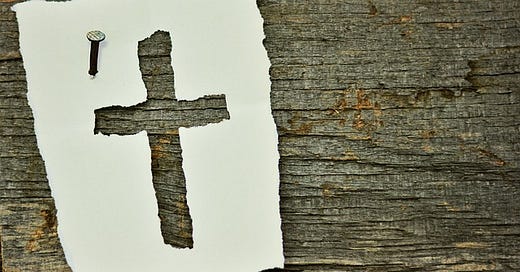This post is for paid subscribers. If you’d like to read the whole thing, and to have complete and unending access to the huge archive of biblical theology articles, consider becoming a paid subscriber. It’s super easy, and you would be supporting the work that goes into this site.
At the beginning of Deuteronomy 21, there is the issue of how to respond to a dead body—in that case, a man who had been killed by an unknown assailant. At the end of Deuteronomy 21, there is the issue of how to respond to a dead body—in that case, a man who had been put to death by the community. In 21:1–9 a dead man was innocent. In 21:22–23 a dead man was guilty.
In these last two verses of Deuteronomy 21, Moses said, “And if a man has committed a crime punishable by death and he is put to death, and you hang him on a tree, his body shall not remain all night on the tree, but you shall bury him the same day, for a hanged man is cursed by God. You shall not defile your land that the LORD your God is giving you for an inheritance” (Deut. 21:22–23).
What’s the logic in Moses’s words? And why did Paul quote from these words when he spoke of Jesus’s substitutionary death?




